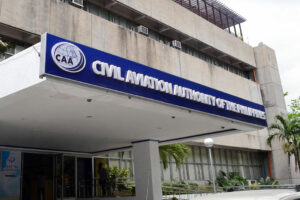Investors may sour on future PPP projects in PHL, analysts say

PEOPLE ride the Light Rail Transit Line 1 in this file photo dated Oct. 19, 2020. — PHILIPPINE STAR/ EDD GUMBAN
By Arjay L. Balinbin, Senior Reporter
THE GOVERNMENT faces another international arbitration claim, this time stemming from the delayed implementation of fare adjustments for the Light Rail Transit Line 1 (LRT-1).
Analysts said investors might sour on public-private partnership (PPP) projects in the Philippines after seeing the government fail to implement the automatic fare adjustment under the contract entered into by Light Rail Manila Corp. (LRMC).
This shows that the government “doesn’t play fairly,” transport expert Rene S. Santiago said in a phone message.
“Message to investors is don’t get enmeshed with PPP (projects) of the Philippines,” he said.
Terry L. Ridon, convenor of public policy think tank Infrawatch PH, said in a separate phone message that automatic fare adjustment was one of the features of PPP projects under the Aquino administration.
“While this has been met with resistance by the public, it has been included as a PPP feature to entice the private sector to invest in public services.”
“While this may entice the private sector into joining PPPs, investors had failed to see that government still wields ultimate control on whether automatic increases can in fact be implemented,” he said. “As a result, the private sector is forced to undertake arbitration proceedings to implement the automatic fare adjustment provisions.”
Mr. Ridon also noted that while this favors the public, it affects the PPP entity’s financial projections since investments in public services were under the premise that they can implement fare increases.
“As a result, it will take longer for the PPP entity to recover its original investment, and certainly, it will discourage investors from further entering into PPPs with government in the future.”
LRMC, the private operator of LRT-1, seeks to recover P2.67 billion in compensation claims and costs resulting from delays in the fare adjustments for 2016, 2018, and 2020, Metro Pacific Investments Corp. (MPIC) said in a May 6 disclosure to the stock exchange.
LRMC is composed of MPIC that leads the consortium with a 55% stake, Ayala group’s AC Infrastructure Holdings Corp. with a 35% stake, and Macquarie Infrastructure Holdings (Philippines), Inc. with a 10% stake.
Mr. Ridon said the government should “renegotiate automatic fare increase provisions with its PPP partners, and determine whether it is a provision that can truly implement instead of subjecting contracts to arbitration, in order to guide the private sector on how to proceed with PPPs in the future.”
“But we nonetheless maintain that there should be no automatic fare increases in public services and utilities, and all increases should be subject to public consultation and government approvals.”
In a phone interview, Philippine Exporters Confederation, Inc. Chairman George T. Barcelon said an arbitration case is a “normal course of business if there are things that need to be clarified.”
“But what we want to project, especially with the [amended] Public Service Act, for us to attract more investments, is that when there are issues that arise, there are proper courts or there are proper agencies to expeditiously and judiciously look into it and render decision,” he said.
“The rule of law must be there. And again, we’ve always been stressing that the ease of doing business is very crucial,” he added.
Sonny A. Africa, executive director of think tank Ibon Foundation, said in a Messenger chat that arbitration cases are an intrinsic risk whenever the government privatizes public utilities and goes into big-ticket partnerships with private investors.
“The Philippine government shouldn’t have to be forced to deal with arbitration proceedings that, win or lose, sees citizens footing the bill. The government should not have to worry about whether it will be sued or not when deciding whether to put the public good before profit,” he said.
The alternative to PPP, Mr. Africa said, is public financing through government bonds and “progressive taxation,” which is “cheaper than relying on private financing for for-profit operations.”
He also pointed out that Ayala’s expression of its intention to divest is “unfortunate and an example of how the government is forced into negotiating with private firms over how much profit they are willing to take just to keep operating.”
A representative of the LRTA said in a phone message: “LRTA cannot yet issue a statement on the matter, as it still has not received a copy of the request for arbitration; and after which, LRTA shall confer with DoTr and the Office of the Government Corporate Counsel.”
NLEX Corp. and CAVITEX Infrastructure Corp., toll road subsidiaries of MPIC, had also filed arbitration cases with the Permanent Court of Arbitration against the government through the Toll Regulatory Board (TRB). Both involve petitions for toll rate adjustments.
The tribunal ruled last year the TRB was not accountable for “unreasonable delay” on petitions for toll rate adjustments filed by MPIC’s tollway unit NLEX Corp. in 2012 and 2014, while it terminated CAVITEX’s arbitration case after the company withdrew its claims for compensation arising from nonapproval of their petitions for rate adjustment filed in 2011 and 2014.
MPIC is one of three Philippine subsidiaries of Hong Kong’s First Pacific Co. Ltd., the others being PLDT, Inc. and Philex Mining Corp.
Hastings Holdings, Inc., a unit of PLDT Beneficial Trust Fund subsidiary MediaQuest Holdings, Inc., maintains an interest in BusinessWorld through the Philippine Star Group, which it controls.




